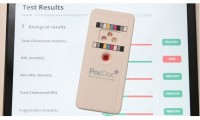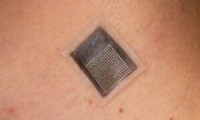-
Acurable prepares to challenge ResMed for sleep apnea diagnosis market
- Source: https://www.medtechdive.com/news/acurable-launch-sleep-apnea-diagnosis/651232/
- 103
- May 28, 2023
-
FDA clears insertable cardiac monitor from Abbott
- Source: drugdu
- 119
- May 20, 2023
-
Abbott expands initiative to increase diversity in clinical trials
- Source: drugdu
- 141
- May 16, 2023
-
A machine-learning approach for the early diagnosis of Parkinson’s disease
- Source: https://www.news-medical.net/news/20230511/A-machine-learning-approach-for-the-early-diagnosis-of-Parkinsons-disease.aspx
- 109
- May 14, 2023
-
Maximizing the Value of AI in Cancer Care
- Source: drugdu
- 150
- May 14, 2023
-
First Of Its Kind Urine Biomarker Methylation Test Predicts Bladder Cancer Recurrence
- Source: drugdu
- 119
- May 11, 2023
-
World-First Smartphone-Powered 5 Marker Lipid Test Aids in Early Detection of Cardiovascular Diseases
- Source: drugdu
- 126
- May 9, 2023
-
Kry showcases digital care pathways
- Source: drugdu
- 119
- May 7, 2023
-
BioSenic progresses cGvHD system and submits patent to EPO
- Source: drugdu
- 129
- May 6, 2023
-
Wearable ultrasound researchers report breakthrough in deep tissue monitoring
- Source: drugdu
- 136
- May 5, 2023
your submission has already been received.
OK
Subscribe
Please enter a valid Email address!
Submit
The most relevant industry news & insight will be sent to you every two weeks.













